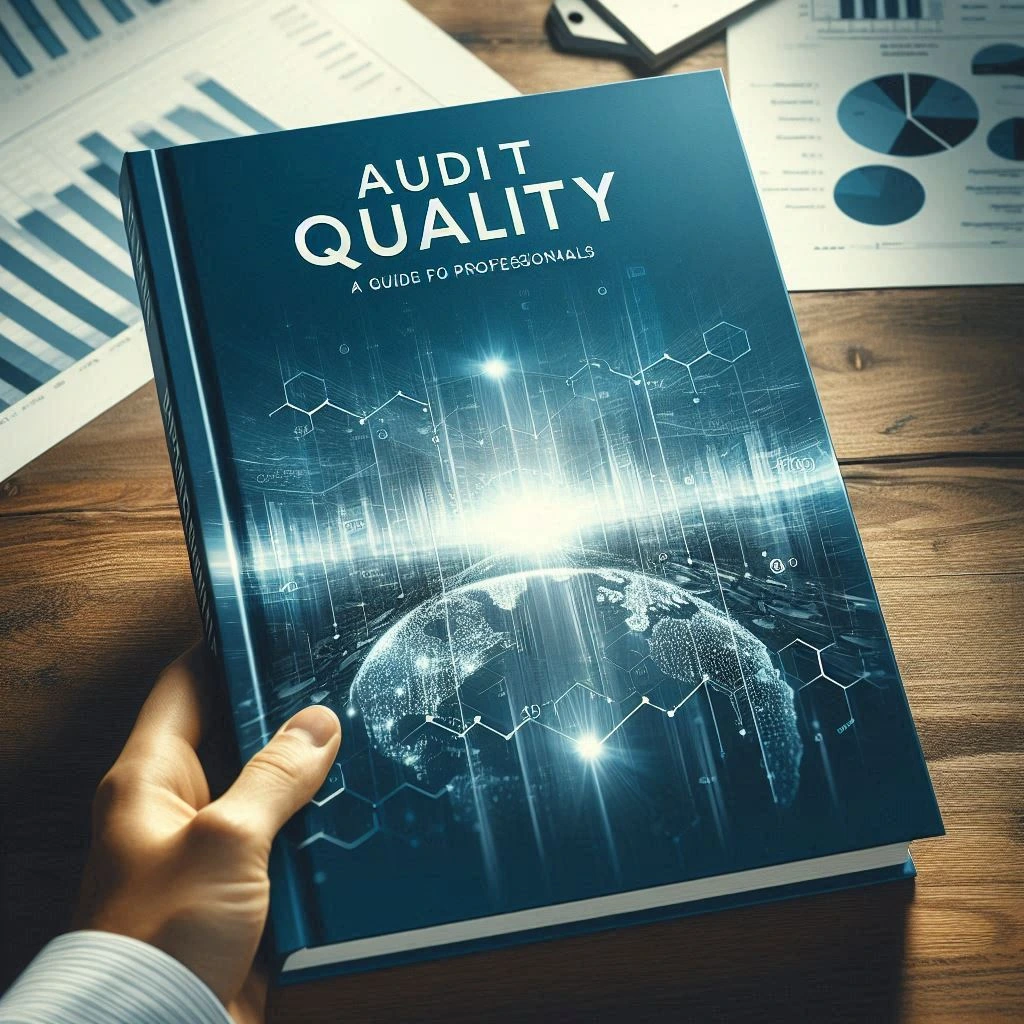In the realm of financial reporting, the International Financial Reporting Standards (IFRS) play a pivotal role in ensuring transparency, consistency, and comparability across financial statements globally. Established by the International Accounting Standards Board (IASB), IFRS provides a comprehensive framework that organizations must adhere to when preparing their financial reports. Obtaining an IFRS certificate through a program can enhance one’s understanding of this framework, which is not only crucial for external stakeholders but also significantly impacts internal audit processes.
Brief Overview of IFRS
IFRS encompasses a set of accounting standards that dictate how various types of transactions and other accounting events should be reported in financial statements. These standards are designed to bring uniformity to financial reporting, making it easier for investors, regulators, and other stakeholders to understand and compare financial information across different organizations and jurisdictions. The adoption of IFRS has been widespread, with many countries mandating its use for publicly traded companies, thereby enhancing the reliability of financial reporting.
Importance of IFRS Compliance for Organizations
Compliance with IFRS is essential for organizations for several reasons:
- Enhanced Credibility: Adhering to IFRS standards boosts the credibility of financial statements, which is vital for attracting investors and maintaining stakeholder trust.
- Regulatory Requirements: Many jurisdictions require compliance with IFRS, and failure to adhere can result in legal repercussions and financial penalties.
- Improved Financial Performance Measurement: IFRS provides a framework that allows organizations to measure and report their financial performance more accurately, facilitating better decision-making.
- Global Business Operations: For organizations operating internationally, IFRS compliance is crucial as it allows for consistent financial reporting across different countries, simplifying cross-border transactions and investments.
Role of Internal Auditors in Ensuring IFRS Compliance and Reporting Accuracy
Internal auditors play a critical role in the implementation and adherence to IFRS within organizations. Their responsibilities include:
- Evaluating Compliance: Internal auditors assess whether the organization is complying with IFRS standards, identifying any gaps or areas for improvement in financial reporting practices.
- Enhancing Reporting Accuracy: By conducting thorough audits, internal auditors help ensure that financial statements accurately reflect the organization’s financial position and performance, thereby enhancing the reliability of the information presented to stakeholders.
- Providing Assurance: Internal auditors provide assurance to management and the board that the financial reporting processes are robust and that the organization is adhering to IFRS requirements.
- Facilitating Training and Awareness: Internal auditors can also play a role in educating staff about IFRS standards, fostering a culture of compliance and awareness throughout the organization.
A solid understanding of IFRS is essential for internal auditors aiming to enhance audit quality and ensure accurate financial reporting. By linking IFRS expertise to improved audit outcomes, internal auditors can significantly contribute to the overall integrity and reliability of financial information within their organizations.
The Link Between IFRS Knowledge and Audit Quality
In the realm of internal auditing, the quality of audits is paramount. Audit quality can be defined as the degree to which an audit is conducted in accordance with established standards, leading to reliable and relevant findings that enhance the decision-making process within an organization. High-quality audits not only ensure compliance with regulations but also provide valuable insights into risk management and operational efficiency.
Definition of Audit Quality in the Context of Internal Audit
Audit quality encompasses several dimensions, including:
- Independence and Objectivity: Auditors must maintain impartiality to provide unbiased assessments.
- Competence and Professionalism: Auditors should possess the necessary skills and knowledge to perform their duties effectively.
- Adherence to Standards: Compliance with International Financial Reporting Standards (IFRS) and other relevant regulations is crucial for ensuring the integrity of financial reporting.
- Effective Communication: Clear and concise reporting of findings is essential for stakeholders to understand the implications of the audit.
The integration of IFRS knowledge into the internal audit process significantly enhances these dimensions of audit quality, leading to more reliable outcomes.
How IFRS Knowledge Contributes to More Effective Risk Assessments
Understanding IFRS is vital for internal auditors as it directly impacts their ability to assess risks associated with financial reporting. Key contributions include:
- Enhanced Understanding of Financial Instruments: IFRS provides a framework for recognizing and measuring financial instruments, which is critical for identifying potential risks in financial statements. This knowledge allows auditors to evaluate the adequacy of controls surrounding these instruments, leading to more accurate risk assessments [7].
- Improved Evaluation of Revenue Recognition: With IFRS 15 outlining specific criteria for revenue recognition, auditors equipped with this knowledge can better assess whether revenue is recognized appropriately, thus identifying risks of misstatement [2].
- Informed Decision-Making: Auditors with a solid grasp of IFRS can provide insights into the implications of accounting choices on financial performance, enabling organizations to make informed decisions regarding risk management strategies [5].
The link between IFRS knowledge and audit quality is clear. By equipping internal auditors with a deep understanding of IFRS, organizations can enhance their audit processes, leading to more effective risk assessments and improved overall audit outcomes. This not only strengthens compliance but also fosters a culture of transparency and accountability within the organization.
Overview of the IFRS Certificate Program
The IFRS Certificate Program is designed to equip professionals with a comprehensive understanding of International Financial Reporting Standards (IFRS), which are crucial for maintaining high audit quality in today’s global financial environment. This program aims to enhance the skills of internal auditors and audit quality managers, enabling them to effectively navigate the complexities of financial reporting and improve audit outcomes.
Description and Objectives
The IFRS Certificate Program features a robust curriculum that covers all aspects of IFRS, providing participants with the knowledge necessary to apply these standards in various contexts. The primary objectives of the program include:
- Understanding IFRS: Participants will gain a detailed understanding of the principles and requirements of IFRS, which are essential for accurate financial reporting and auditing.
- Enhancing Audit Quality: By mastering IFRS, auditors can ensure that financial statements are prepared in accordance with international standards, thereby improving the reliability and transparency of audit outcomes.
- Career Advancement: The program positions professionals as valuable assets in the financial industry, opening doors to global opportunities and enhancing their career prospects in multinational corporations and audit firms [3][4].
Curriculum Overview
The curriculum of the IFRS Certificate Program is comprehensive and integrated, consisting of 25 online self-study courses. Key topics covered include:
- Fundamentals of IFRS: An introduction to the core principles and framework of IFRS.
- Financial Statement Preparation: Detailed guidance on how to prepare and present financial statements in compliance with IFRS.
- Special Accounting Topics: Exploration of specific accounting and reporting issues that auditors may encounter, ensuring a well-rounded understanding of the standards [2].
- Practical Applications: The program incorporates multimedia elements, including audio, video, and interactive exercises, to facilitate learning and application of IFRS concepts in real-world scenarios.
Through this curriculum, participants will develop essential skills such as critical thinking, analytical abilities, and practical knowledge that are vital for effective auditing.
Target Audience and Eligibility Criteria
The IFRS Certificate Program is relevant to a wide range of professionals, particularly those involved in the preparation, interpretation, and auditing of financial statements. The target audience includes:
- Internal Auditors: Professionals seeking to enhance their understanding of IFRS to improve audit quality and compliance.
- Audit Quality Managers: Individuals responsible for overseeing audit processes and ensuring adherence to international standards.
There are no specific entry requirements for the program, making it accessible to all who wish to deepen their knowledge of IFRS and its application in the audit process [11]. This inclusivity allows a diverse group of professionals to benefit from the program, ultimately contributing to improved audit quality across the industry.
The IFRS Certificate Program serves as a vital resource for internal auditors and audit quality managers, providing them with the expertise needed to enhance audit quality outcomes through a thorough understanding of international financial reporting standards.
Benefits of IFRS Certification for Internal Auditors
Obtaining an IFRS certification offers significant advantages for internal auditors, enhancing their skill set and professional credibility while improving audit quality outcomes. Here are the key benefits:
- Enhanced Skill Set and Professional Credibility: IFRS certification equips internal auditors with a comprehensive understanding of international financial reporting standards. This knowledge not only deepens their expertise but also establishes their credibility within the organization and the broader financial community. As the demand for professionals who can navigate complex financial reporting frameworks increases, certified auditors are often viewed as more competent and reliable [9][12].
- Improved Ability to Identify and Mitigate Financial Reporting Risks: With a solid grasp of IFRS, internal auditors can better assess financial statements and identify potential discrepancies or risks associated with financial reporting. This capability is crucial in ensuring that organizations adhere to compliance requirements and maintain transparency in their financial practices. By understanding the nuances of IFRS, auditors can provide valuable insights that help mitigate risks and enhance the overall quality of financial reporting [3][4].
- Greater Career Opportunities and Potential for Advancement: The global recognition of IFRS certification opens up a multitude of career opportunities for internal auditors. As organizations increasingly adopt international standards, the demand for professionals with IFRS expertise is on the rise. This certification not only positions auditors for higher-level roles but also enhances their marketability, leading to better job prospects and potential salary increases [2][11][13].
Obtaining an IFRS certification is a strategic move for internal auditors aiming to enhance their professional capabilities, improve audit quality, and advance their careers in an increasingly competitive landscape.
Implementing IFRS Knowledge in Internal Audit Practices
In the evolving landscape of financial reporting, internal auditors play a pivotal role in ensuring that organizations adhere to International Financial Reporting Standards (IFRS). By integrating IFRS knowledge into audit practices, internal auditors can enhance audit quality and contribute to the overall transparency and reliability of financial statements. Here are key strategies for implementing IFRS knowledge in internal audit processes:
- Integrating IFRS Principles into Audit Planning and Execution: Internal auditors should begin by incorporating IFRS principles into their audit planning phase. This involves understanding the specific IFRS standards applicable to the organization and assessing how these standards impact financial reporting. By aligning audit objectives with IFRS requirements, auditors can ensure that their evaluations are relevant and comprehensive. This systematic approach not only enhances the effectiveness of the audit but also ensures compliance with international standards, fostering trust among stakeholders [1].
- Developing Audit Programs that Reflect IFRS Standards: Crafting audit programs that are reflective of IFRS standards is crucial for maintaining audit quality. This includes designing audit procedures that specifically address the key areas of IFRS, such as revenue recognition, asset valuation, and financial statement presentation. By tailoring audit programs to incorporate IFRS requirements, internal auditors can better identify potential risks and discrepancies in financial reporting. This proactive stance not only improves the accuracy of financial statements but also supports the organization’s commitment to transparency and accountability [2][5].
- Utilizing IFRS Knowledge in Training and Mentoring Audit Teams: Continuous education and training in IFRS are essential for audit teams to stay updated with the latest standards and practices. Internal auditors should leverage their IFRS expertise to mentor and train their teams, fostering a culture of knowledge sharing and professional development. This can be achieved through workshops, seminars, and practical case studies that illustrate the application of IFRS in real-world scenarios. By enhancing the team’s understanding of IFRS, organizations can improve audit quality outcomes and ensure that all team members are equipped to address complex financial reporting issues [12].
By effectively implementing IFRS knowledge in internal audit practices, auditors can significantly enhance the quality of their audits. This not only leads to more accurate financial reporting but also strengthens the overall governance framework within the organization, ultimately supporting sustainable growth and stakeholder confidence.
Challenges in Adopting IFRS Standards and Overcoming Them
The adoption of International Financial Reporting Standards (IFRS) presents several challenges for internal auditors, which can significantly impact audit quality. Understanding these challenges and implementing effective strategies can enhance the overall audit process. Below are some common barriers to IFRS adoption, along with suggested solutions.
Identifying Barriers to IFRS Adoption within Organizations
- Lack of Training and Expertise: One of the primary barriers is the insufficient training of staff on IFRS principles. Many internal auditors may not have the necessary knowledge or skills to effectively apply these standards, leading to inconsistencies in financial reporting and audit outcomes.
- Inconsistent Implementation: Organizations often face difficulties in uniformly implementing IFRS across different departments. This inconsistency can arise from varying levels of understanding and commitment to the standards among finance teams.
- Complexity and Ambiguity of Standards: IFRS is known for its general principles and less detailed instructions compared to other frameworks like U.S. GAAP. This ambiguity can create confusion and misinterpretation among auditors, affecting the quality of audits.
- Resistance to Change: There may be a cultural resistance within organizations to shift from traditional accounting practices to IFRS. This resistance can stem from fear of the unknown or a lack of perceived benefits from adopting new standards [10].
Strategies for Effective Communication and Collaboration with Finance Teams
- Establishing Clear Communication Channels: Internal auditors should work closely with finance teams to ensure that there is a mutual understanding of IFRS requirements. Regular meetings and updates can help bridge the knowledge gap and foster collaboration.
- Creating Cross-Functional Teams: Forming teams that include both auditors and finance professionals can facilitate knowledge sharing and enhance the implementation of IFRS. This collaborative approach can lead to more effective problem-solving and a unified approach to compliance.
- Providing Ongoing Training and Support: Organizations should invest in continuous training programs for internal auditors and finance staff. This can include workshops, seminars, and access to online resources that focus on IFRS updates and best practices [14].
Resources and Tools Available to Support IFRS Implementation
- Professional Development Programs: Various institutions offer IFRS certification programs that can equip internal auditors with the necessary skills and knowledge. These programs often include practical case studies and real-world applications of IFRS.
- Guidance from Professional Bodies: Organizations can leverage resources from professional accounting bodies, such as the International Federation of Accountants (IFAC), which provide guidelines and recommendations for IFRS adoption.
- Technology Solutions: Implementing software tools designed for IFRS compliance can streamline the reporting process and reduce the risk of errors. These tools often include features for tracking changes in standards and automating calculations [9].
- Networking and Knowledge Sharing: Engaging with professional networks and forums can provide internal auditors with insights and experiences from peers facing similar challenges. This exchange of information can lead to innovative solutions and best practices in IFRS implementation.
By addressing these challenges and leveraging available resources, internal auditors can enhance their expertise in IFRS, ultimately leading to improved audit quality outcomes. The commitment to continuous learning and collaboration will be key in navigating the complexities of IFRS adoption.
Future Trends in Internal Audit and IFRS Compliance
As the landscape of internal auditing continues to evolve, the integration of International Financial Reporting Standards (IFRS) knowledge is becoming increasingly vital for enhancing audit quality. This section explores emerging trends that significantly impact the relationship between internal audit functions and IFRS compliance, focusing on three key areas: technology and data analytics, anticipated changes in IFRS standards, and the evolving role of internal auditors in corporate governance.
Impact of Technology and Data Analytics on Audit Practices
The adoption of advanced technologies and data analytics is transforming internal audit practices. Internal auditors are now leveraging these tools to enhance their efficiency and effectiveness in identifying, tracking, and reporting risks. The integration of technology allows auditors to:
- Perform Real-Time Audits: With data analytics, auditors can analyze large volumes of data in real-time, enabling them to detect anomalies and trends that may indicate compliance issues or financial misstatements.
- Enhance Risk Assessment: Technology facilitates a more comprehensive risk assessment process, allowing auditors to focus on high-risk areas that require closer scrutiny, particularly in relation to IFRS compliance.
- Improve Reporting: Automated reporting tools streamline the communication of audit findings, making it easier for stakeholders to understand the implications of IFRS standards on financial statements and overall compliance [2][13].
Anticipated Changes in IFRS Standards and Their Implications for Audits
The IFRS landscape is continuously evolving, with anticipated changes that could significantly impact audit practices. As such IFRS Certificate Programs are great way to staty ahead of the evolving stakeholder expectations. As new standards are introduced or existing ones are revised, internal auditors must stay informed and adapt their methodologies accordingly. Key implications include:
- Increased Complexity: New IFRS standards may introduce more complex accounting treatments, requiring auditors to deepen their understanding of these standards to ensure accurate assessments and compliance.
- Focus on Data-Driven Assurance: As organizations increasingly rely on data-driven decision-making, auditors will need to develop skills in data analytics to effectively evaluate compliance with IFRS standards and provide assurance on financial reporting [9][11].
- Regulatory Compliance: Changes in IFRS standards often coincide with shifts in regulatory requirements, necessitating that internal auditors remain vigilant and proactive in their compliance efforts to mitigate risks associated with non-compliance [4][10].
Evolving Role of Internal Auditors in Corporate Governance and Compliance
The role of internal auditors is expanding beyond traditional compliance checks to encompass a broader advisory function within corporate governance. This evolution is driven by several factors:
- Strategic Business Advisors: Internal auditors are increasingly seen as strategic partners who provide insights on risk management and governance, particularly in relation to IFRS compliance. Their expertise can guide organizations in navigating complex financial reporting requirements [11][15].
- Enhanced Stakeholder Engagement: As internal auditors engage more with stakeholders, they play a crucial role in fostering a culture of transparency and accountability, which is essential for effective corporate governance and compliance with IFRS standards [10][12].
- Continuous Learning and Adaptation: The dynamic nature of IFRS and the audit profession necessitates that internal auditors commit to continuous learning and professional development, ensuring they remain equipped to address emerging challenges and trends in the field [2][14].
The integration of IFRS knowledge into internal audit practices is essential for enhancing audit quality. By embracing technology, staying abreast of changes in IFRS standards, and evolving their roles within corporate governance, internal auditors can significantly contribute to improved compliance and risk management outcomes. As the profession continues to adapt, the emphasis on IFRS expertise will be a key driver of success in the internal audit landscape.
Conclusion
In the ever-evolving landscape of financial reporting, the significance of International Financial Reporting Standards (IFRS) cannot be overstated, particularly for internal auditors and audit quality managers. The knowledge and application of IFRS are crucial in enhancing audit quality outcomes, as they provide a framework that ensures consistency, transparency, and accountability in financial reporting.
Key takeaways include:
- Importance of IFRS Knowledge: Understanding IFRS equips internal auditors with the necessary tools to assess financial statements accurately and identify potential risks. This expertise not only enhances the quality of audits but also fosters trust among stakeholders by ensuring that financial reports are compliant with international standards [14].
- Pursuing IFRS Certification: The AICPA’s IFRS Certificate Program is specifically designed to help professionals build the knowledge required to navigate the complexities of IFRS. By obtaining this certification, internal auditors can demonstrate their expertise and commitment to maintaining high audit quality standards. This credential can serve as a valuable asset in a competitive job market, showcasing a dedication to professional development and excellence in the field.
- Staying Updated on IFRS Developments: The financial reporting landscape is continually changing, with new standards and updates being introduced regularly. It is essential for internal auditors to stay informed about these developments and integrate them into their audit practices. Engaging with ongoing training, attending workshops, and participating in relevant discussions can help professionals remain at the forefront of IFRS knowledge [5][6].
In conclusion, enhancing audit quality through IFRS expertise through IFRS Certificate Program is not just a goal but a necessity for internal auditors and audit quality managers. By pursuing IFRS certification and committing to continuous learning, professionals can significantly improve their audit outcomes and contribute to the overall integrity of financial reporting. Embrace the opportunity to elevate your skills and ensure that your audits meet the highest standards of quality and compliance.
Find out more about Shaun Stoltz https://www.shaunstoltz.com/about/
This post was written by an AI and reviewed/edited by a human.



